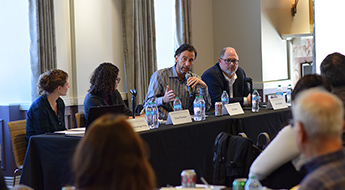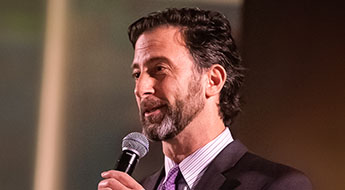The Social Media Discourse of Engaged Partisans. Political discourse on social media is infamously uncivil. Prevailing explanations argue that such incivility is driven by differences in ideological or social-identity conflict—partisans are uncivil because the political stakes are so high. Finkel and his colleague Michalis Mamakos consider a different (albeit not contradictory) possibility—that online political discourse tends to be uncivil because the people who opt into such discourse are generally uncivil. They are analyzing commenting behavior of over 6.3 million Reddit users across thousands of diverse cultural contexts (subreddits). They suggest an alternative hypothesis: People who opt into political discourse tend to be especially toxic, even when discussing non-political topics in non-partisan contexts. Such individuals disproportionately dominate political discourse online, thereby undermining the public sphere as a venue for inclusive debate.
Social-Emotional Polarization and Antidemocratic Tendencies. Does social-emotional polarization foster antidemocratic tendencies? Over the past decade, claims of such an effect have pervaded both popular commentary and scholarly discourse—to the point where the link has become widely accepted as an article of faith. But recent research has raised credible doubts. Even as Finkel and his colleagues replicate the effects underlying those doubts, they demonstrate that social-emotional polarization, when properly conceptualized and operationalized, does indeed predict antidemocratic tendencies. Leveraging cross-sectional, longitudinal, and experimental methods, including a study conducted during the U.S. 2022 midterm elections, they are developing and validating a measure of political sectarianism.
Books
Finkel, E., and R. Baumeister, eds. 2019. Advanced Social Psychology: The State of the Science, 2nd ed. New York: Oxford University Press.
Finkel, E. 2017. The All-Or-Nothing Marriage: How the Best Marriages Work. New York: Dutton.
Journal Articles
Olson, J., S. Rick, D. Small, and E. Finkel. 2023. Common cents: Bank account structure and couples’ relationship dynamics. Journal of Consumer Research 50(4): 704–21. https://doi.org/10.1093/jcr/ucad020
Eastwick, P., E. Finkel, and S. Joel. 2023. Mate evaluation theory. Psychological Review 130(1): 211–41.
Emery, L. and E. Finkel. 2022. Connect or protect? Social class and self-protection in romantic relationships. Journal of Personality and Social Psychology 122(4): 683–99.
Hartman, R., W. Blakey, J. Womick, C. Bail, E. Finkel, H. Han, J. Sarrouf, J. Schroeder, P. Sheeran, J. Van Bavel, R. Willer, and K. Gray. 2022. Interventions to reduce partisan animosity. Nature Human Behaviour 6: 1194–205.
Finkel, E., C. Bail, M. Cikara, P. Ditto, S. Iyengar, S. Klar, L. Mason, M. McGrath, B. Nyhan, D. Rand, L. Skitka, J. Tucker, J. Van Bavel, C. Wang, and J. Druckman. 2020. Political sectarianism in America. Science 370(6516): 533–36.
Finkel, E. and A. Hall. 2018. The I3 Model: A metatheoretical framework for understanding aggression. Current Opinion in Psychology 19: 125–30.
Finkel, E., P. Eastwick, and H. Reis. 2017. Replicability and other features of a high-quality science: Toward a balanced and empirical approach. Journal of Personality and Social Psychology 113(2): 244–53.
Joel, S., P. Eastwick, and E. Finkel. 2017. Is romantic desire predictable? Machine learning applied to initial romantic attraction. Psychological Science 28(10): 1478–89.
Finkel, E., E. Cheung, L. Emery, K. Carswell, and G. Larson. 2015. The suffocation model: Why marriage in America is becoming an all-or-nothing institution. Current Directions in Psychological Science 24(3): 238–44.
Fitzsimons, G., E. Finkel, and M. vanDellen. 2015. Transactive goal dynamics. Psychological Review 122(4): 648–73.
Finkel, E., E. Slotter, L. Luchies, G. Walton, and J. Gross. 2013. A brief intervention to promote conflict-reappraisal preserves marital quality over time. Psychological Science 24(8): 1595–601.
Editorials
Finkel, E. J. 2024, June 23. The failings of the Chicago Principles when it comes to free speech. Chicago Tribune.


